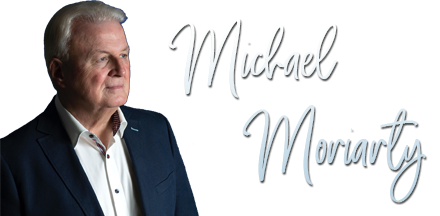Perhaps one of the biggest lifestyle changes we all face in life is when we retire from our work roles or our lifetime careers. Even those who look forward to retirement as a way out of a stressful work environment can experience dramatic lifetime adjustments, resulting in a variety of emotional responses, which in themselves are stressful. Adjustment problems can arise from the loss of a work role and this can have a disintegrating effect on identity and morale.
Roles define our identity and often those entering the retirement phases of their lives can experience a loss of status arising from a loss of identity and lack of purpose. This is particularly the case for those whose sense of identity had been largely shaped by their job or work role. In a matter of a few weeks, many of those who have newly retired may experience isolation and lack of relevance. Adjustment problems can lead to an emotional crisis, defensiveness, self-pity, or anger.
Baby Boomers ( born 1946-1964) are now retiring in large numbers and need to prepare for the dramatic lifestyle adjustments after retirement. For many, the advent of retirement is seen as a break for freedom, but even those who look forward to retirement can struggle to find relevance after the initial honeymoon period. For some older retirees becoming less relevant can be an aspect of aging. Many retirees may have had multiple career supports and significant prestige from their previous work roles. Too often they were defined by what they were, and in post-retirement, they may be newly challenged to reinvent themselves by creating a new identity and relevance.
One thing is for sure, we should not associate retirement with old age. Rather, it is a time to let go of a past life and re-invest in a future life full of potential. You are more than a title, so you need to create a new fulfilling life by changing the source of your relevance. There should be no difference in your worth as a person after you retire, but we all need a focus and purpose in our lives and your goal should be to redefine who you are now rather than what you were in the past. Your work-life structure must be replaced with your retirement-life structure.
There is no future in the past, so don’t look back or feel regret. Retirement is the opportunity to do what you want to do rather than what you have to do. It can mean the end of deadlines, multi-tasking, endless meetings, and people management. Many retirees do miss the social interaction with colleagues, customers, and staff, so discovering new social connections should be a priority. You need new networks, acquaintances, experiences, and new initiatives to maintain fulfillment in a new life after retirement.
Retirement provides the opportunity to follow your passion and to set a new direction. Challenge yourself to find purpose, perhaps by becoming involved in local community initiatives, by providing your experience to commercial or community boards, by going back to college or gaining new qualifications, by playing more of your favourite sports. There is no one-size-fits-all solution because we are all different people with different attitudes and aptitudes. Rather than feeling sorry for ourselves, we need to act with purpose to work on what we have gained in terms of time, flexibility, and freedom.
When I retired from a high-profile career with a national organisation in Ireland I was aware that the sudden change in the pace of life would present particular challenges for me. The diversion of my work emails and telephone calls could have accentuated feelings of isolation and obsolescence. A sudden lack of purpose and direction could have undermined my confidence and self-belief. That might have been the case if I had not prepared for my life change.
I have always believed that we never really fully exploit our true potential. I planned for my career change, not my retirement, and that is what it was for me. It was not retirement from my working life; it was the start of a new life cycle that allowed me to do what I wanted to do. At the start of my new post-retirement life, I resolved to start each day with purpose and with a focus on developing a new role and career. I rose early each morning and spent my mornings researching and writing my first book, To date, I have published three books and I am currently marketing my third book, How to Bring Your Best Self to Work-Strategies for Career Success (see www.michaelmoriarty.ie). Writing my books and articles has become my “thing” that has helped me transition to a new life that gives me renewed fulfillment and purpose.
For those who are transitioning to retirement, the change of lifestyle may prove to be easy or difficult. The transition should be seen only as a change in lifestyle where you have far more control over your days and weeks. Some people will diversify their activities and interests before this life-changing experience and will then have the time to expand those interests. The loss of social interaction at work will have been replaced by new relationships and interests. Relationships keep us connected and engaged and should be nurtured.
Focus on what has been gained, not what has been lost. Think like an entrepreneur and follow your passion, whatever it might be. Let go of the past and invest in the future. Life is not static so focus on new initiatives and new experiences. Keep your mind sharp and your skills current. A lifetime of experiences has shaped who you are so add new experiences to create the new you. Who we are is more important than what we are; your role has shifted. You can have multiple identities-mother/father or grandparent, sportsperson, volunteer, coach, consultant, mature student, activist. You can use your knowledge and experience for the benefit of others in the community or on various boards. Use your time wisely and plan your day and week. Set challenges and goals and stop worrying about how much you matter.
Very often retirement is associated with older age but there are great benefits for retiring seniors when viewed positively. An article in the Smithsonian magazine referenced studies that suggest that older adults enjoy greater emotional and intellectual stability along with greater empathy and social awareness. A lifetime of experiences may have improved their life and communication skills and provided a deeper realisation of what really matters. Older retirees will have left the drama-filled younger years behind them.
To conclude, I need only repeat a recent Linkedin post by John Doran, which amazingly has had more than 6.2 million views. It references comments by actor, film director, and producer, Clint Eastwood.
Partner: ‘How old are you, Clint?’
Clint:’I turn eighty-eight on Monday’.
Partner:’What are you going to do?’
Clint: ‘I am going to start a new movie’.
Partner:’ What keeps you going?’
Clint: ‘I get up every day and don’t let the old man in’.
( Feature photo by Helena Lopes on Unsplash)

